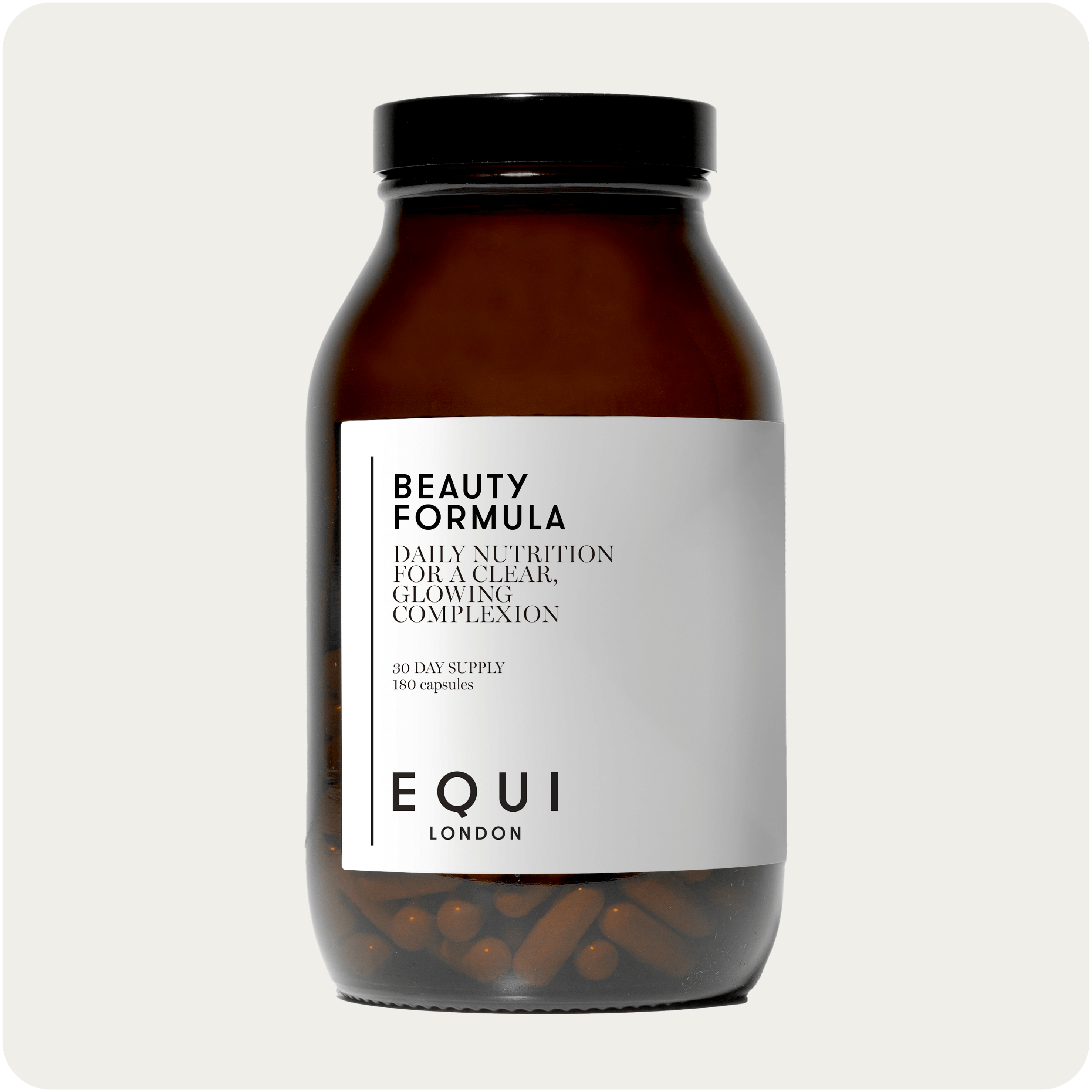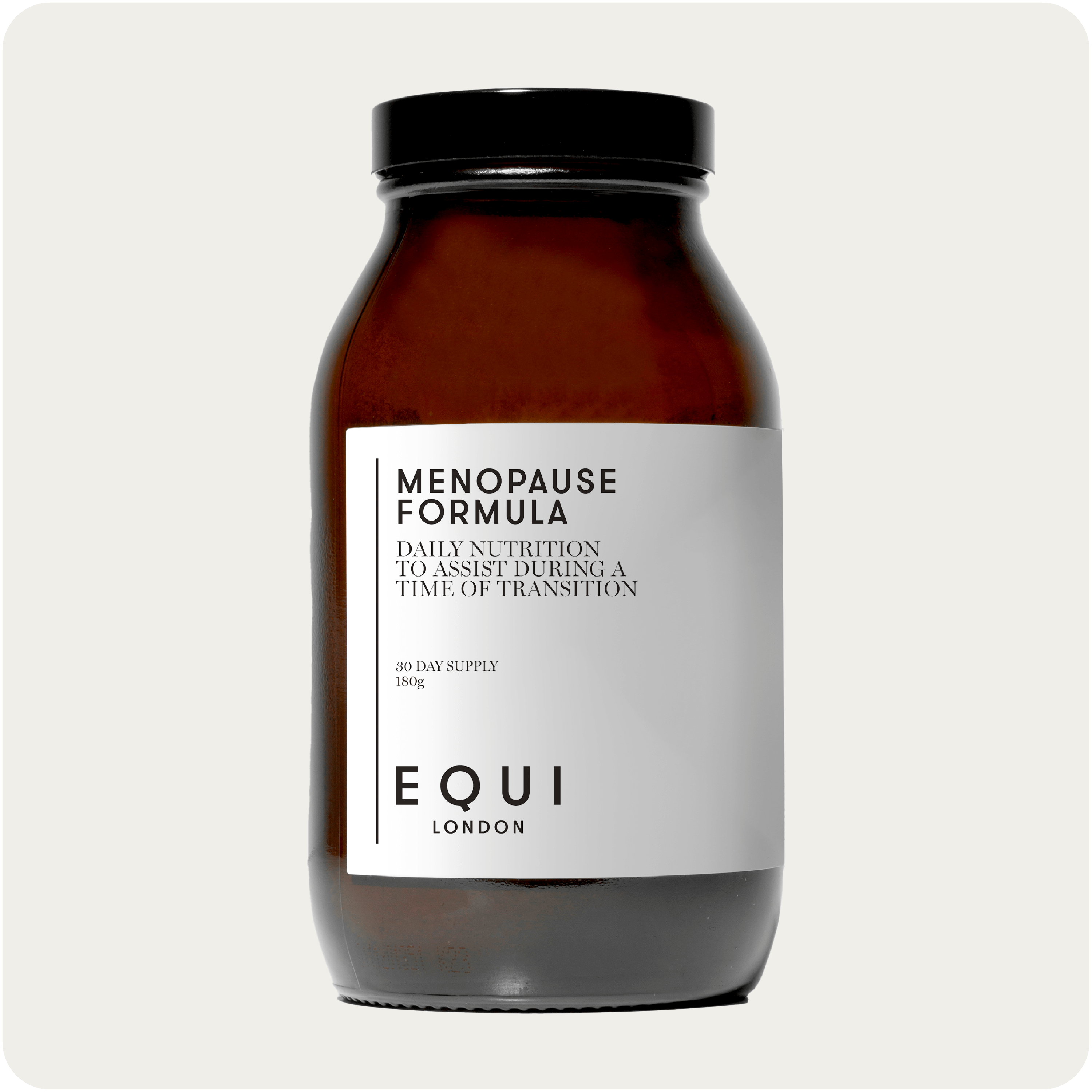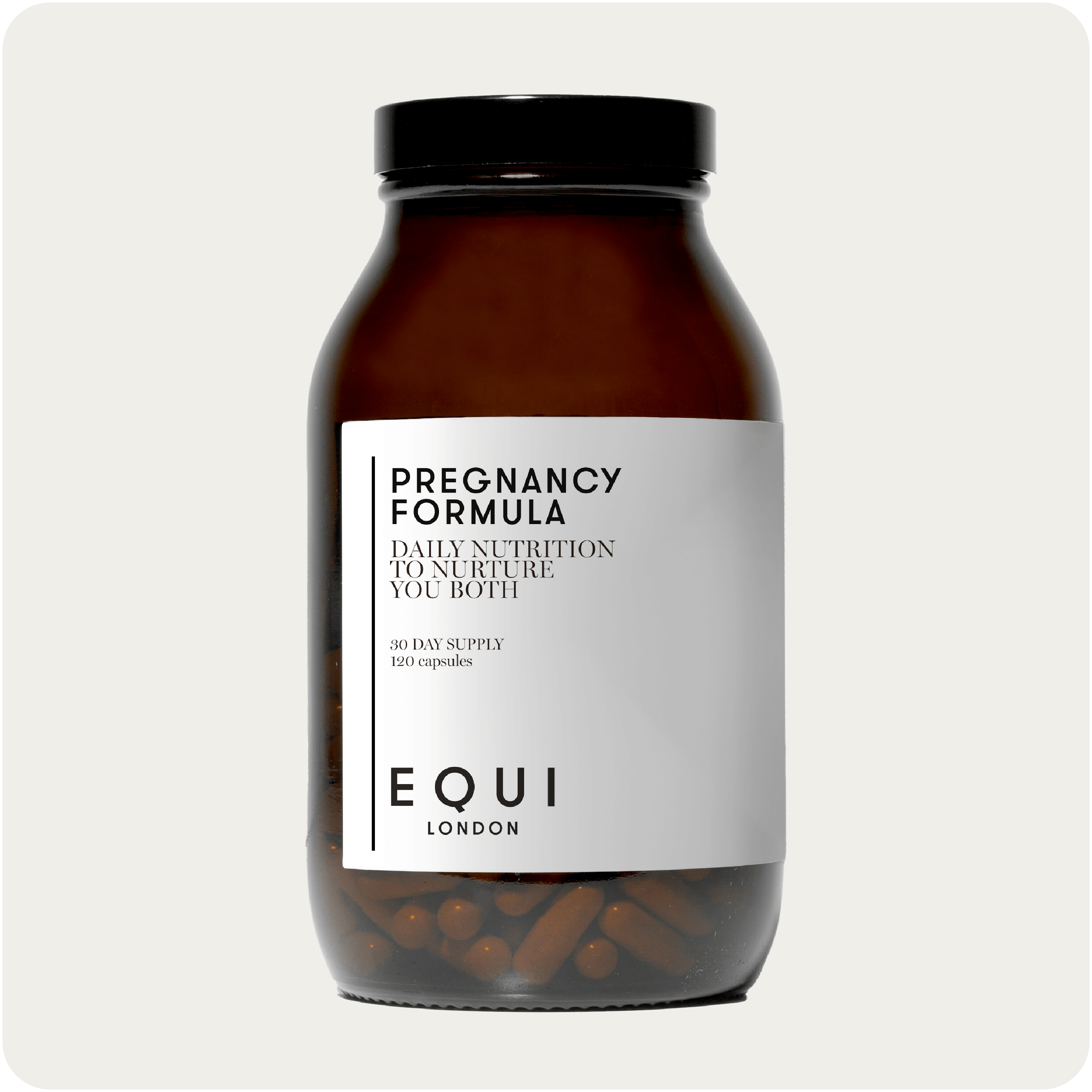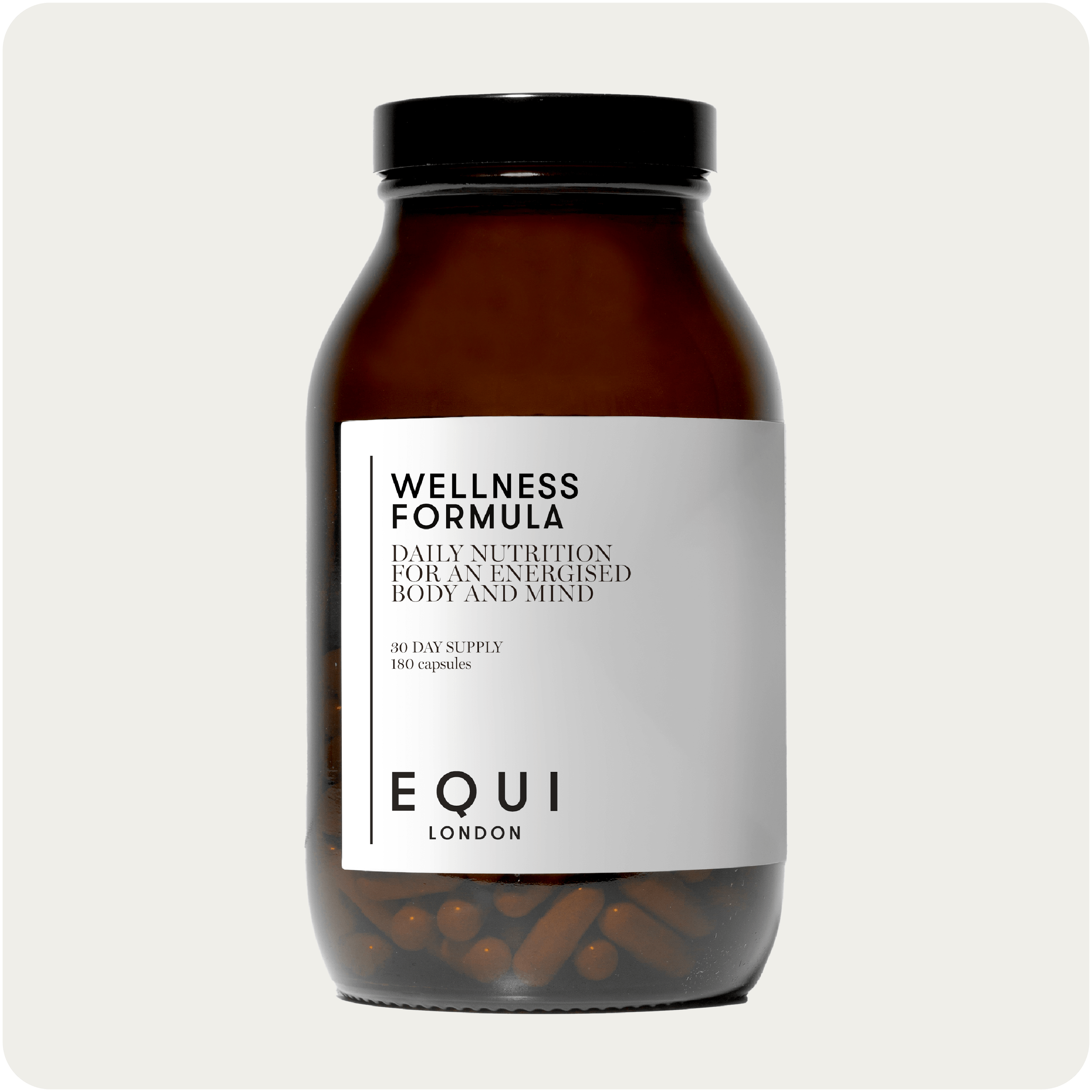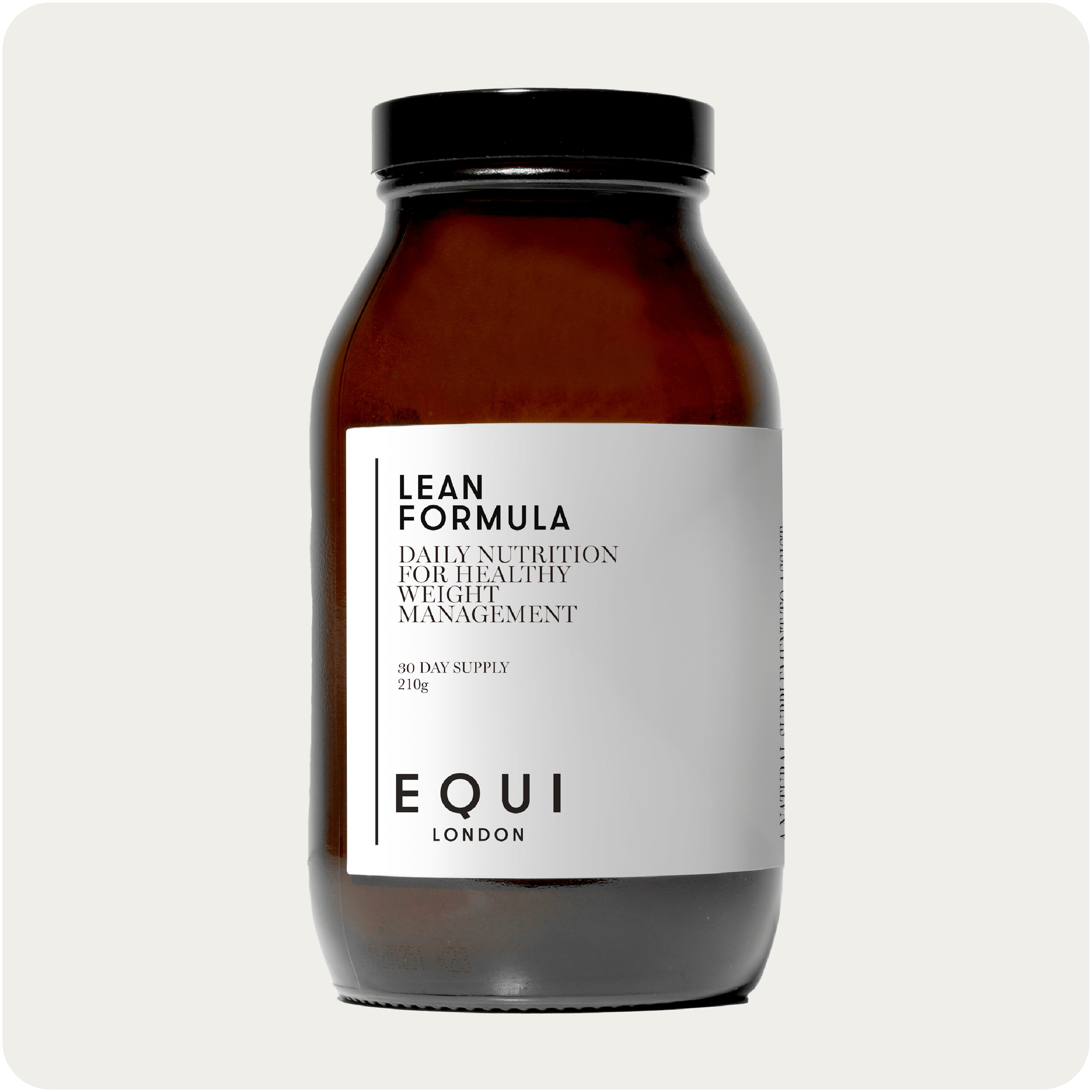Menopause is a natural phase in every woman’s life, yet it often comes with unexpected and challenging symptoms. One of the most frustrating symptoms for many women is brain fog, which includes forgetfulness, difficulty concentrating, and general mental cloudiness. In fact, many feel as if they’re losing control over their mental sharpness, causing stress and anxiety. These cognitive shifts can affect everything from productivity at work to daily tasks, yet they are often overlooked as part of the menopausal transition. In this blog, we will explore the causes of brain fog during menopause, focusing on hormonal changes and how they impact mental clarity. We’ll also discuss the nutrients and lifestyle changes that can help manage brain fog, improve memory, and boost cognitive function. Finally, we’ll explore how our award-winning Menopause Formula can offer an all-in-one solution to support brain health and overall wellness, simplifying the complex journey through menopause.
Brain fog during menopause is primarily driven by hormonal fluctuations, particularly the decline in oestrogen and progesterone. Oestrogen plays a vital role in regulating neurotransmitters like serotonin and dopamine, which affect mood, focus, and memory. As oestrogen levels drop, these neurotransmitters become less effective, leading to mental confusion, slower cognitive processing, and forgetfulness. Progesterone, known for its calming effects, also drops, which can lead to increased anxiety, irritability, and sleep disturbances—all of which further contribute to brain fog. Moreover, sleep issues and stress are common during menopause, compounding the cognitive struggles. When we don’t get adequate sleep, the brain can’t efficiently clear out toxins or consolidate memories, leaving us feeling mentally sluggish. While hormonal changes are inevitable, nutrition plays a crucial role in supporting cognitive function and combating brain fog. The gut-brain connection is increasingly recognised as essential to cognitive function, and gut health can directly affect brain clarity and focus. We will explore this as well as the key nutrients and antioxidants that support brain health, improve mood, focus, sleep quality, and manage stress levels.
Aside from nutrition, lifestyle changes can have a significant impact on managing brain fog during menopause. We will support you in how to optimise sleep and manage stress, helping you to reduce mental fatigue. Finally, we will share how our Menopause Formula provides a comprehensive solution to managing brain fog and overall health during menopause. With a blend of over 45 bioavailable nutrients, our Formula offers you an easy, all-in-one supplement to address not only brain fog but also other common symptoms like fatigue, mood swings, hot flushes, and skin changes, simplifying wellness during the menopause. By supporting the body as a whole, it provides long-term benefits to help you feel more in control and mentally sharp during this phase of life.
What Causes Brain Fog and Poor Memory in Menopause?
The hormonal fluctuations experienced during menopause, particularly the decline in oestrogen and progesterone, can significantly impact cognitive function, memory, and mental clarity. These hormones are deeply intertwined with brain function, and their decline during perimenopause and menopause contributes to symptoms often described as "brain fog"—difficulty concentrating, forgetfulness, and mental sluggishness. Oestrogen receptors are located in various regions of the brain, including the hippocampus and prefrontal cortex, which are critical for memory, cognition, and executive function (1). The decline in oestrogen during menopause reduces the activation of these receptors, leading to symptoms like brain fog, impaired memory, and diminished cognitive clarity.
What’s more, oestrogen plays a critical role in regulating neurotransmitters, particularly serotonin and dopamine, which influence mood, focus, and cognitive function. Serotonin, often referred to as the "feel-good" neurotransmitter, is heavily influenced by oestrogen levels. Research shows that oestrogen modulates serotonin synthesis, receptor expression, and the availability of serotonin in the brain (2). As oestrogen declines during menopause, serotonin activity is reduced, leading to mood disturbances such as depression, anxiety, and cognitive challenges like difficulty concentrating and slower mental processing (3). Dopamine, another key neurotransmitter, is also affected by oestrogen levels. Dopamine plays a significant role in motivation, reward-driven behaviours, and attention. A reduction in dopamine availability, driven by declining oestrogen, can lead to decreased motivation, feelings of apathy, and difficulty maintaining focus. These neurotransmitter changes are often at the heart of the cognitive symptoms many women experience during menopause. What’s more, the gut-brain link plays a vital role in managing brain fog during menopause by supporting healthy communication between the gut and the brain through the gut microbiota. A balanced gut can reduce inflammation, which is known to impact cognitive function, and promote the production of neurotransmitters like serotonin that enhance mood and focus.
Furthermore, progesterone, which is known for its calming and anxiolytic (anxiety-reducing) effects, begins to decline in the early stages of perimenopause, even before oestrogen fluctuations become significant. Progesterone helps stimulate gamma-aminobutyric acid (GABA) receptors in the brain, a neurotransmitter associated with relaxation and calmness (4). When progesterone levels drop, particularly in early perimenopause, women may experience increased anxiety, irritability, and difficulty sleeping—all of which exacerbate cognitive issues like brain fog and memory problems. This decline in progesterone can have a profound knock-on effect. Mood swings become more common, and without the calming influence of progesterone, women are more prone to stress and anxiety. Chronic stress further disrupts cognitive function by impairing memory and executive functioning, and over time, this can create a vicious cycle of stress-induced brain fog.
Hormonal fluctuations also contribute to sleep disturbances, which are prevalent during menopause and significantly worsen cognitive issues. Oestrogen and progesterone both play roles in regulating sleep cycles, and when these hormones decline, women often experience insomnia or poor sleep quality (5). Sleep deprivation, in turn, negatively impacts memory consolidation and cognitive processing, contributing to the feeling of mental fogginess. Moreover, increased stress levels during menopause can heighten cortisol, a stress hormone, which has been shown to impair memory and executive functioning when chronically elevated. High cortisol levels interfere with hippocampal function (the brain region responsible for memory), exacerbating cognitive symptoms like forgetfulness and confusion (6). By understanding the impact of our hormones on neurotransmitter regulation, sleep, and stress, it becomes clearer why women experience such pronounced cognitive challenges during this phase of life. Supporting brain health with proper nutrition, lifestyle changes, and possibly hormone therapy can alleviate some of these symptoms and improve overall well-being during menopause.
Nutrients That Support Cognitive Function and Hormonal Balance
During menopause, cognitive function can be affected by hormonal changes, particularly the decline in oestrogen and progesterone. Fortunately, certain nutrients can help mitigate symptoms like brain fog, memory loss, and lack of mental clarity by supporting brain health and reducing inflammation.
Omega-3 Fatty Acids - Omega-3s, particularly DHA and EPA, are vital for brain function and reducing inflammation. They play a key role in maintaining the integrity of brain cell membranes, which supports cognitive performance. Omega-3s have been shown to enhance memory and mood, especially during the menopause transition. Research shows that DHA supplementation improves memory and learning in healthy adults (7). Regular intake of omega-3 fatty acids through diet or supplementation can promote brain health during menopause. Oily fish is the richest source of omega 3, with algae oil providing a vegan alternative. Omega 3 can also be obtained from seeds such as chia, hemp, and flaxseeds, as well as nuts such as walnuts. Menopause Oil Edition has been specifically formulated for women over 40 and is the perfect partner to Menopause Formula and contains organic cold-pressed flaxseed and hempseed oil - two exceptional plant-based oils, high in omega 3’s fatty acids. Shop here.
B Vitamins (B6, B12, Folate) - B vitamins are essential for maintaining brain health, especially in women going through menopause. They help synthesise neurotransmitters like serotonin and dopamine, which influence mood and cognition. Additionally, vitamin B12 and folate are crucial for preventing cognitive decline by lowering homocysteine levels, which are linked to brain health. Deficiencies in these vitamins may lead to memory problems, mood swings, and brain fog. Meat, poultry, and fish are excellent sources of the B vitamins.
Iron - Iron is necessary for maintaining energy levels and cognitive function. Low iron can lead to fatigue, poor concentration, and reduced cognitive performance. Iron deficiency anaemia, often seen in women during perimenopause due to heavier periods, can exacerbate these symptoms. Adequate iron intake is important for cognitive clarity. Animal-based sources are more bioavailable such as red meat and organ meats such as liver, but iron can also be obtained from lentils, chickpeas, and spinach. Vitamin C can increase the absorption of iron.
Iodine - Iodine is crucial for normal cognitive and neurological function, as it plays a key role in thyroid health, which influences brain metabolism and energy. The thyroid hormone thyroxine (T4) supports cognitive function, and iodine deficiency can impair these processes, leading to reduced mental clarity and focus. Dairy, fish, and seaweed are excellent sources of iodine.
Choline - Choline is a nutrient that supports brain function, particularly memory and cognition. It helps form acetylcholine, a neurotransmitter essential for learning and memory processes. Supplementation with choline has been linked to improved cognitive function and brain health (8), hence why we added choline to Menopause Formula. Choline can also be found in eggs and chickpeas.
Magnesium - Magnesium is important for relaxation and improving sleep quality, both of which can help ease cognitive issues during menopause. Research has shown that magnesium supports brain plasticity and protects against neurological dysfunction. It is especially beneficial in improving sleep, which often deteriorates during menopause, contributing to brain fog.
Vitamin D - Vitamin D is crucial for cognitive health and hormone regulation, and low levels are often associated with cognitive decline and mood disorders. A study found a positive correlation between adequate vitamin D levels and improved cognitive performance (9). Vitamin D supplementation may help support mental clarity during menopause.
Antioxidants (Vitamin C, E, Selenium) - Antioxidants combat oxidative stress in the brain, which can contribute to cognitive decline. Vitamin C, vitamin E, and selenium help protect brain cells from damage and maintain optimal cognitive function and can be obtained from berries, seeds, and Brazil nuts.
KSM66® Ashwagandha & Rhodiola - These adaptogenic herbs are scientifically proven to reduce anxiety, improve mood, and enhance sleep quality, which is why we included them in Menopause Formula. They help restore adrenal function, preventing burnout and stress, which can worsen cognitive decline. Rhodiola has been shown to improve memory and focus (10), while Ashwagandha aids in lowering cortisol levels and boosting overall cognitive function (11).
Rosemary - Known for its cognitive-boosting properties, rosemary contains ursolic acid, which has been shown to improve memory and reduce inflammation throughout the body. Menopause Formula contains rosemary extract to address brain fog head on.
By incorporating these key nutrients into your diet or supplement regime, you can help protect brain health and alleviate cognitive symptoms associated with menopause.
Lifestyle Changes to Help Manage Brain Fog
Managing brain fog, especially during menopause, requires a holistic approach that incorporates lifestyle changes to support brain function, mood, and overall well-being. Here are four key lifestyle changes to help you improve mental clarity and cognitive function during this time:
1. Sleep Hygiene
Quality sleep is vital for cognitive function, memory retention, and mood regulation. Poor sleep exacerbates brain fog, which is why practicing good sleep hygiene is essential. Establishing regular sleep patterns can help regulate the body’s internal clock. Aim for 7-8 hours of sleep each night by going to bed and waking up at the same time daily.
Tips to improve sleep hygiene:
Reduce screen time - Blue light emitted by screens can suppress melatonin production, a hormone essential for sleep. Avoid screens at least an hour before bedtime, and instead, opt for relaxing activities like reading or taking a warm bath.
Support your circadian rhythm - Exposing yourself to natural daylight in the morning helps set your circadian rhythm, improving sleep quality at night. In the evening, dim the lights and engage in calming activities to wind down. Consistently supporting your circadian rhythm can improve not just sleep but also daytime alertness and mental clarity.
2. Stress Management
Chronic stress is a major contributor to brain fog, as it affects hormone levels and cognitive function. Whilst it can be a viscous cycle due to hormonal fluctuations during the menopause, implementing stress management techniques can help reduce mental fatigue and improve focus.
Effective stress management techniques:
Mindfulness and meditation - Practicing mindfulness and meditation for 10-20 minutes daily can help calm the mind and reduce stress. These practices improve focus, lower cortisol levels, and promote mental clarity.
Gentle exercise - Engaging in physical activities like yoga, walking, or tai chi helps reduce stress hormones and improve circulation to the brain, enhancing cognitive function. Exercise also boosts endorphins, which improve mood and reduce feelings of fatigue.
3. Regular Physical Activity
Physical exercise is essential for maintaining good brain health. Engaging in regular physical activity boosts blood flow to the brain, promoting neurogenesis (the creation of new brain cells) and supporting cognitive function.
Best activities for brain health:
Yoga - This mind-body exercise helps improve brain function by increasing oxygenation to brain cells, reducing stress, and improving sleep quality.
Walking - Moderate-intensity exercise, such as brisk walking, improves circulation and helps keep brain cells nourished. Walking outdoors is especially beneficial, as it combines physical exercise with exposure to natural daylight.
4. Balanced Diet
Diet plays a crucial role in cognitive health, supporting the gut-brain axis and a diet rich in anti-inflammatory foods can help reduce oxidative stress in the brain, which contributes to brain fog.
Key dietary strategies:
Anti-inflammatory foods - Incorporate foods rich in omega-3 fatty acids, such as fatty fish, flaxseeds, and walnuts, to help reduce inflammation in the brain. Omega-3s are essential for maintaining brain cell membranes and supporting neurotransmitter function.
Antioxidant-rich foods - Foods like berries, leafy greens, and nuts are packed with antioxidants, which protect brain cells from oxidative damage. These nutrients can help maintain mental clarity and reduce brain fog.
Fibre and probiotics for gut-brain health - A fibre-rich diet supports gut health, which is closely linked to brain function. Whole grains, fruits, and vegetables can help maintain a healthy gut microbiome, which has been shown to influence cognitive health and mood. Probiotics alongside a diet rich in fibre can help restore gut health, thereby improving mental clarity and reducing brain fog.
Incorporating these lifestyle changes can significantly help manage brain fog and improve cognitive function. By supporting both the brain and body, these strategies create a foundation for better mental clarity and overall well-being during menopause and beyond.
How Menopause Formula Can Simplify Wellness
Menopause can bring about a myriad of challenges, from brain fog and hormonal imbalances to reduced energy and mood fluctuations. Menopause Formula offers a revolutionary approach to supporting you through this life transition. Packed with over 45 bioavailable nutrients, this Formula provides the vitamins, minerals, and antioxidants necessary to support brain health, energy levels, skin vitality, and overall well-being. By addressing hormonal balance and the multiple systems in the body, Menopause Formula simplifies and enhances wellness, allowing you to thrive during this transition.
Hormonal fluctuations, particularly during menopause, can disrupt not only reproductive health but also brain function, sleep, and mood. EQUI Menopause Formula is meticulously designed to nourish and balance the hormonal system, focusing on the key nutrients needed to regulate hormone activity. Vitamins such as B6 are crucial for managing hormonal fluctuations, helping to alleviate symptoms like mood swings, irritability, and brain fog. Meanwhile, the inclusion of magnesium helps reduce stress and promotes relaxation, essential for easing sleep disturbances that often accompany menopause. The Formula also contains iodine, vital for supporting thyroid function, which plays a key role in energy production and cognitive function. Thyroid health is especially important during menopause, as low thyroid activity can exacerbate feelings of fatigue, brain fog, and sluggishness. By supporting the thyroid, Menopause Formula helps you maintain energy and mental clarity.
One of the most common complaints during menopause is brain fog—a sense of mental cloudiness that can affect focus, memory, and productivity. EQUI Menopause Formula addresses this through a combination of B vitamins, magnesium, and antioxidants. B12, folate, and riboflavin are essential for neurotransmitter production and the overall function of the nervous system, ensuring that brain cells communicate effectively. Magnesium, known for its calming effects, supports sleep quality, helping to improve concentration and reduce mental fatigue. Antioxidants such as vitamins C and E, along with selenium and zinc, help reduce oxidative stress, which is known to impair brain function. By combatting free radical damage, these nutrients ensure the brain remains healthy and vibrant, even as oestrogen levels decline. Omega-3 fatty acids, found in our Menopause Oil Edition provide further support to brain cell membranes, enhancing mental clarity and memory retention.
Menopause can significantly impact energy levels, with many women experiencing chronic fatigue due to hormonal shifts. Our Menopause Formula incorporates a blend of iron, magnesium, and B vitamins to combat tiredness and improve vitality. Iron helps replenish stores that may be depleted, particularly in women who experience heavy periods leading up to menopause. B vitamins (such as B6 and B12) aid in the production of red blood cells and energy metabolism, ensuring women feel physically and mentally energised. In addition, adaptogens like KSM-66® Ashwagandha and Rhodiola are included to improve the body’s resilience to stress. These adaptogens have been scientifically proven to reduce anxiety and promote a sense of calm, making it easier to manage the emotional ups and downs that menopause often brings.
Beyond internal support, Menopause Formula promotes external vitality by nourishing the skin, hair, and nails. Biotin, selenium, and vitamin C contribute to collagen formation, helping to maintain skin elasticity and reduce dryness, a common concern during menopause. Zinc and niacin support the structure of hair and nails, ensuring they remain strong and healthy.
EQUI Menopause Formula goes beyond targeting menopause symptoms—it supports overall wellness by addressing the body’s ten interconnected systems. By creating equilibrium, this Formula powers the body to its optimum state, allowing women to feel energised, mentally strong, and physically vibrant. With this holistic approach, Menopause Formula becomes the ultimate companion for women seeking to balance their hormones, manage brain fog, and maintain wellness during menopause. Shop here.
Disclaimer: All of the information on this website is provided for general information only, it should not be treated as a substitute for the medical advice of your own doctor or any other health care professional providing personalised nutrition or lifestyle advice. If you have any concerns about your general health, you should contact your local health care provider. No one diet or supplement regime works for everyone and you should always seek help from a GP and registered health expert before making changes to your diet, or before introducing any supplements. This is especially important when pregnant.
References
- Hara Y, Waters EM, McEwen BS, Morrison JH. Estrogen Effects on Cognitive and Synaptic Health Over the Lifecourse. Physiol Rev. 2015 Jul;95(3), pp. 785-807.
- Del Río Juan Pablo et al. (2018). Steroid Hormones and Their Action in Women's Brains: The Importance of Hormonal Balance. Frontiers in Public Health. VOLUME=6
- Freeman, E. W., et al. (2006). "Associations of Hormones and Menopausal Status with Depressed Mood in Women with No History of Depression." Archives of General Psychiatry, 63(4), pp. 375-82.
- Stefaniak, Małgorzata, Ewa Dmoch-Gajzlerska, Katarzyna Jankowska, Artur Rogowski, Anna Kajdy, and Radosław B. Maksym. 2023. "Progesterone and Its Metabolites Play a Beneficial Role in Affect Regulation in the Female Brain" Pharmaceuticals 16, no. 4: 520.
- Baker, F. C., et al. (2018). "Sleep Problems during the Menopausal Transition: Prevalence, Impact, and Management Challenges." Nature and Science of Sleep, 10, pp. 73-95.
- Walf, A. A., & Frye, C. A. (2006). "A Review and Update of Mechanisms of Estrogen in the Hippocampus and Amygdala for Anxiety and Depression Behavior." Neuropsychopharmacology, 31, pp. 1097-1111.
- Yurko-Mauro, K. et al. (2010). "Beneficial effects of docosahexaenoic acid on cognition in age-related cognitive decline." Alzheimer's & Dementia 6(6), pp. 456-464.
- Liu L, Qiao S, Zhuang L, Xu S, Chen L, Lai Q, Wang W. Choline Intake Correlates with Cognitive Performance among Elder Adults in the United States. Behav Neurol. 2021 Oct 29;2021:2962245
- Harse JD, Zhu K, Bucks RS, Hunter M, Lim EM, Cooke BR, Walsh JP, Murray K. Investigating Potential Dose-Response Relationships between Vitamin D Status and Cognitive Performance: A Cross-Sectional Analysis in Middle- to Older-Aged Adults in the Busselton Healthy Ageing Study. Int J Environ Res Public Health. 2021 Dec 31;19(1):450.
- Ma GP, Zheng Q, Xu MB, Zhou XL, Lu L, Li ZX, Zheng GQ. Rhodiola rosea L. Improves Learning and Memory Function: Preclinical Evidence and Possible Mechanisms. Front Pharmacol. 2018 Dec 4;9:1415.
- Xing D, Yoo C, Gonzalez D, Jenkins V, Nottingham K, Dickerson B, Leonard M, Ko J, Faries M, Kephart W, Purpura M, Jäger R, Sowinski R, Rasmussen CJ, Kreider RB. Effects of Acute Ashwagandha Ingestion on Cognitive Function. Int J Environ Res Public Health. 2022 Sep 20;19(19):11852
